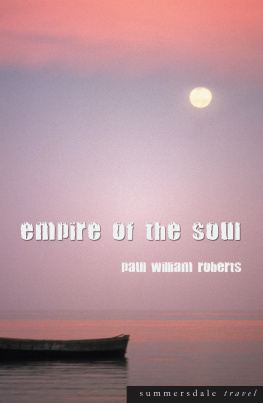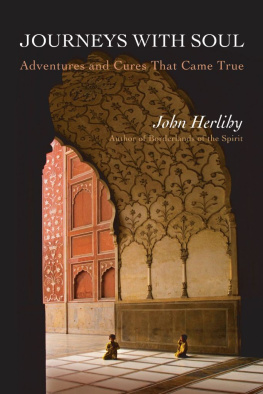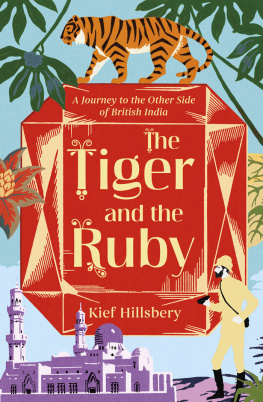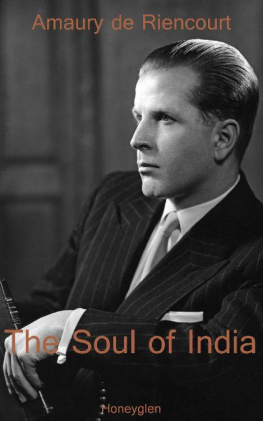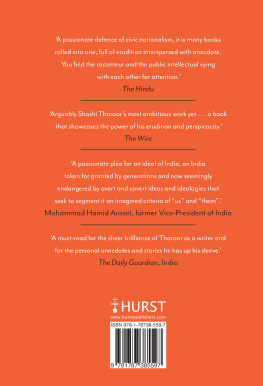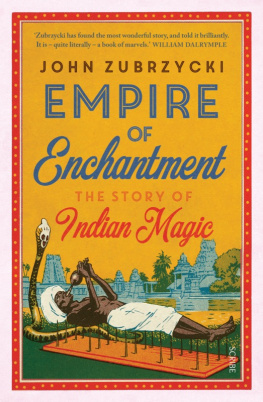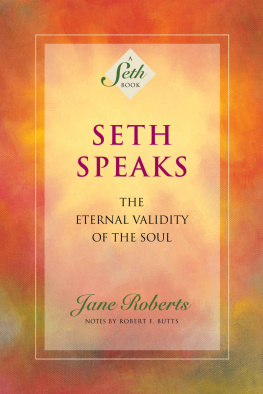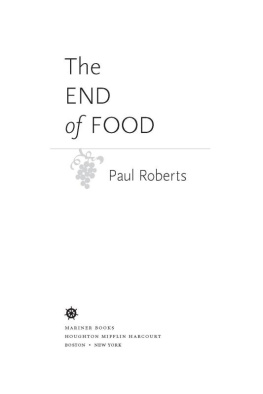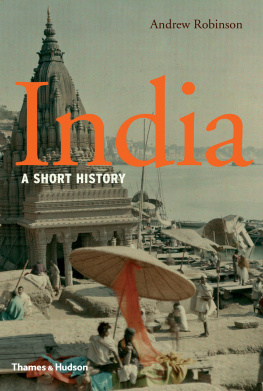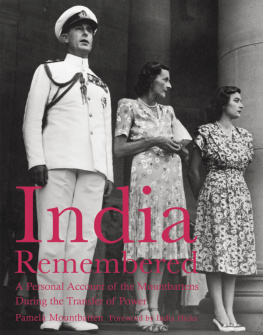Consistency in the spelling of transliterations from Sanskrit and the many other Indian languages is a nightmarish problem for the writer (and editor). I have endeavoured to maintain some semblance of it, but when quoting another writer have been obliged to use his or her preferences. There simply is no right or wrong when rendering into English sounds from a language with no written vowels. Similarly, I have tried to remain constant with the names of gods and goddesses, but have inevitably run into trouble not just with quotations but with the names of people. Ganesh, for example, is also called Ganesa, Ganapati, and so on. The god Siva often appears as Siv, Shiv, or Shiva; I did not feel justified in respelling Shiva Naipauls name, for instance, or retitling a Hindu charity for the sake of consistency. The resulting confusion a reader may find is, however, a faithful reflection of the apparent chaos visitors to India often mistake for the rule of anarchy rather than the teeming profusion of too much sheer energy and life. At least, thats the way I choose to see it. Translations from the Sanskrit of the Vedic hymns are my own and aim more for a spiritual than a linguistic accuracy.
Introduction
I lived in India for a few years during the seventies and have returned for various reasons some twenty times since then. It is the only country that feels like home to me, and certainly the only country whose airport tarmac I have ever kissed on landing.
Like many of my generation, I originally went searching for that vague and tantalising thing, Truth. What I found, of course, was a different sort of truth, another kind of relationship. Like all relationships, it has its ups and downs, its love and its hate. To portray this in all its variety, its simplicity and its complexity, I have divided the book into two sections: The Seventies and The Nineties.
Thus, you have not just the sense of a changing country, but also a changed narrator. I have relied heavily on notebooks, diaries and journals for The Seventies, deciding to stay as close to my original perceptions as possible, with little revisionist hindsight beyond the addition of historical and philosophical information that, I hope, benefits the reader as much as it would have benefited me had I possessed it myself back then. Just out of university, I was naive and impressionable.
Over a decade of more mundane and material concerns later, in The Nineties, my impressions are mostly more objective. Mostly. In certain areas, however, India still makes me wide-eyed with wonder, as naive and impressionable as ever though with, I hope, a deeper appreciation for people, the individuals who are engaged in forging a modern nation from eight hundred years of internal division and foreign domination. Their task is truly daunting.
When I arrived in the first hotel room on my last visit, in 1992, I switched on the television out of habit. Before, there had only been one risibly antiquated state channel to watch, Doordarshan. Now, to my utter amazement, I found the Star TV Network beaming in via satellite from Hong Kong such choices as CNN, the BBC World Service, and even a special Asian version of MTV. This last, with Madonna bouncing around in her underwear the kind of sight you couldnt pay to see legally in pre-1992 India caused plenty of heated controversy in the press. Until someone noticed that two or three Indian performers had videos playing regularly, too, and that they looked just like everyone elses... It was an inspiring novelty for Indians to find that they could clearly compete on the common ground of international pop music. Yet, I soon learned, other novelties had been coming thick and fast for some time under the progressive, if troubled, government of Narasimha Rao.
With what may be the largest middle-class consumer market in the world, India was starting to interest foreign companies as never before. There really hadnt been much of a middle class when I first arrived. Now, however, in the midst of coping with a tragic resurfacing of communal violence worse than any since Partition in 1947, the government had managed to relax protectionist trade restrictions, and was actively courting international investment. Indian industries were even beginning to make a considerable impact on world markets themselves. Although the old pessimism remained in many quarters a legacy of colonialism even the population problem was being viewed by some as a potential resource, rather than a liability. It was indeed a brave new India, one that I believe is soon set to amaze the world in the next millennium.
The Partition stands as the last and cruellest memorial of those whose interests in India were and are almost entirely self-serving. If I am harsh on the British in this book, it is my privilege: I am British by birth, and I now live in another ex-colony that still bears the unmistakable scars of imperialism.
Whatever the political upheavals that rock the subcontinent, religion and India remain inseparable. My understanding of what spirituality means changes evolves, I hope over the following pages, along with my understanding of a land that like no other pullulates with every imaginable variety of it.

